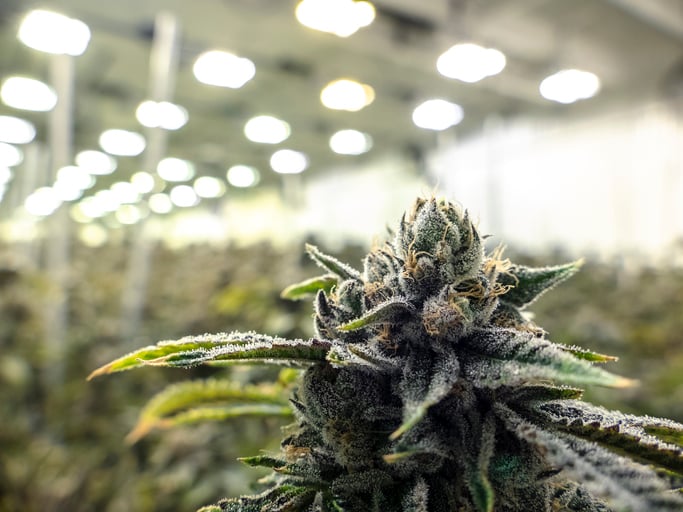No Canadian cannabis producer has made a bigger bet on the U.S. market than Canopy Growth (CGC +0.00%). The huge financial opportunity in the U.S. was certainly enticing to the leading Canadian pot company. But Canopy also had to be encouraged by the strong public support for marijuana legalization that was accompanied by increasing support from politicians.
Even President Trump seemed to be in favor of changing federal laws not too long ago. In 2018, Trump stated that he would probably support legislation sponsored by Sen. Cory Gardner (R-Colo.) and Sen. Elizabeth Warren (D-Mass.) to allow states to legalize marijuana without violating federal laws. If this bill became law, it would be fantastic news for Canopy Growth.
That was then. Now it appears that the Trump train is rolling over Canopy Growth.

Image source: WhiteHouse.gov.
Presidential potholes
Last week, Las Vegas TV station KLAS interviewed Marc Lotter, director of strategic communications for Trump's re-election campaign. The interview dashed any hopes that Trump would support changes to the status quo for legalized marijuana.
Lotter said Trump is looking at the issue of marijuana legalization "from the standpoint of a parent -- a parent of a young person -- to make sure that we keep our kids away from drugs." He added: "They [cannabis and other drugs] need to be kept illegal. That is the federal policy."
Actions by the Trump White House appear to back up Lotter's statements. Since his brief statement in 2018 that hinted at potential support for changes to federal marijuana laws, the president hasn't given any support to efforts from Gardner and others. And for three out of the past four years, he has specifically included in his signing statement of major funding bills that his administration doesn't have to abide by a congressional provision that would protect states that have legalized medical marijuana from federal intervention.
Canopy Growth's bet
The problem for Canopy Growth is that as long as marijuana remains illegal at the federal level, it can't enter the U.S. market and retain its listings on major stock exchanges. Of course, that's the same challenge for all the big Canadian marijuana stocks. But Trump's anti-marijuana stance is especially troubling for Canopy Growth.
In April of last year, Canopy announced plans to plans to acquire U.S.-based Acreage Holdings (ACRGF +0.00%) for $3.4 billion. The deal would catapult Canopy Growth into the U.S. marijuana market. The catch was that the acquisition would only be completed if marijuana becomes legal at the federal level in the United States.
Did Canopy put $3.4 billion at risk? No. However, the company did make a $300 million up-front payment to Acreage. If the transaction isn't completed, Acreage gets to keep the money.
Also, the clock is ticking on the deal itself. If marijuana isn't legalized at the federal level in the U.S. within 90 months of Canopy's payment of the up-front amount, which occurred in July 2019, the agreement between Canopy Growth and Acreage terminates. Trump's opposition to federal legalization of marijuana could greatly increase the odds that Canopy Growth will lose its $300 million.
Different tracks
While the Trump administration may not benefit Canopy Growth, there's also the possibility that different tracks will be more positive for the company. The front-runner for the Democratic presidential nomination, Sen. Bernie Sanders of Vermont, has committed to legalizing marijuana across the U.S. on the first day of his presidency by using an executive order.
On the other hand, the two candidates who rank No. 2 and No. 3 behind Sanders in national polling aren't big proponents of marijuana legalization. Former Vice President Joe Biden isn't in favor of changing federal marijuana laws until more research is conducted about the potential negative health effects. Former New York City Mayor Mike Bloomberg, meanwhile, favors decriminalization of marijuana but not legalization.
Even if Canopy Growth's hopes to enter the U.S. marijuana market fade, though, the company won't be totally blocked from making money in its neighbor to the south. The company has already launched its first CBD products in the U.S. and has plans to introduce other CBD products in the near future.






